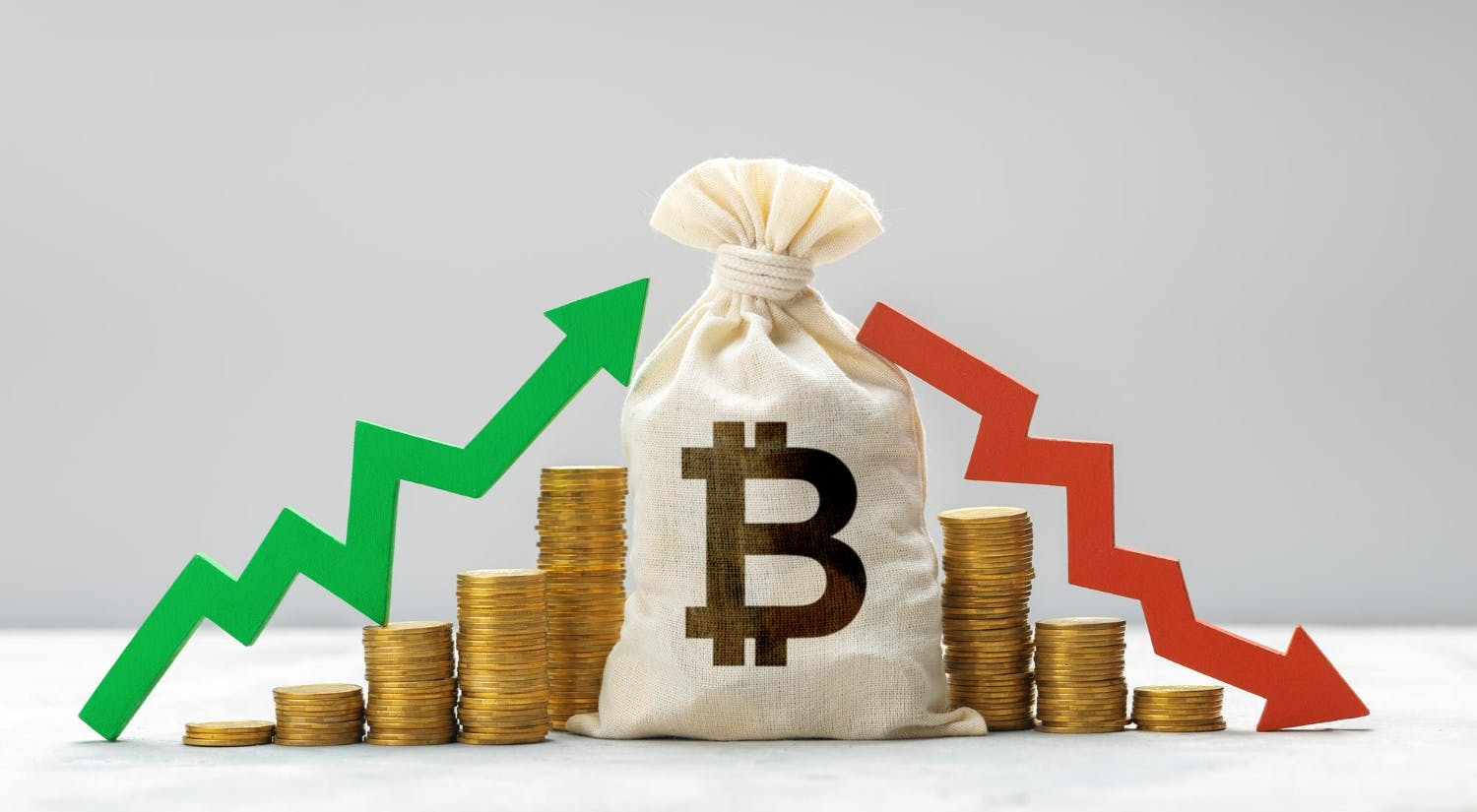Singapore’s Evolving Crypto Tax Laws: The 2024 Guide for Crypto Investors
9th Dec 2023

Table of Contents
Who Should Read This Crypto Tax Guide?
Current Tax Treatment of Crypto Assets
New Crypto Tax Regulations in 2024
Tax Planning Tips Before 2024
Frequently Asked Questions
Conclusion
Over the last few years, cryptocurrency adoption in Singapore has accelerated rapidly. An increasingly crypto-savvy population has embraced digital assets for investing, trading, and even spending. However, Singapore’s crypto tax laws have lagged behind this growth.
That is set to change in 2024, as Singapore introduces new cryptocurrency tax legislation covering capital gains tax, GST, and tighter regulations for crypto businesses. This guide examines the upcoming 2024 crypto tax rules in Singapore and provides tax planning tips for crypto investors before the new regime hits.
1. Who Should Read This Crypto Tax Guide?
This article is tailored for:
- Singapore-based cryptocurrency investors and traders
- Blockchain and crypto companies operating in Singapore
- Anyone who buys, sells, or spends crypto in Singapore currently or from 2024
With crypto tax obligations intensifying from 2024, understanding the new taxation landscape is essential. Proactive tax planning before the changes kick in can also help investors optimize and smooth the transition Crypto Tax Laws.
2. Current Tax Treatment of Crypto Assets
Presently, cryptocurrency tax policies in Singapore are still maturing. Crypto is not considered legal tender in the city-state. However, the Inland Revenue Authority of Singapore (IRAS) has provided guidance on the tax treatment of various crypto transactions and assets based on existing regulations.
Here is the current taxation approach for individuals dealing in cryptocurrencies in Singapore:
Cryptocurrencies as Investment Assets Crypto Tax Laws
- Trading gains when selling/disposing of cryptocurrencies as investments are not taxable for individuals
- No capital gains tax or income tax currently applies when crypto held as investments are sold at a profit
Using Cryptocurrency as Payment
- Retail purchases using crypto instead of fiat currency does not trigger a taxable event
- However, businesses accepting crypto as payment are liable for income tax
While the IRAS has provided general guidance, some gray areas remain around aspects like airdrops, staking rewards, and crypto mining. But the status quo on crypto taxes is due for an overhaul beginning 2024.
3. New Crypto Tax Regulations in 2024
With crypto’s ballooning popularity amongst consumers and businesses, Singapore is implementing a robust new cryptocurrency tax regime from 2024 onwards:
Capital Gains Tax on Crypto Trading
The most seismic shift is the introduction of capital gains tax for crypto trades from January 1, 2024. Under the new regime:
- Capital gains tax will apply when digital payment tokens are sold or traded as investments for profit by:Individuals and businesses: A blanket capital gains tax will hit all entitiesSingapore residents and non-residents: Locals and foreigners dealing in crypto will face capital gains taxes
- A 0% capital gains tax rate will apply initially on gains up to S$200 annually. This threshold may be reviewed later.
- Tax rates will likely align with income tax brackets above the S$200 threshold but official rates are still pending.
Implications:
Investors trading frequently or dealing in large crypto transaction volumes will take a significant tax hit from 2024. However, most average retail crypto investors may fall under the S$200 no-tax threshold for capital gains annually.

GST Levied on Crypto Transactions
Singapore is also set to apply a blanket 7% Goods and Services Tax (GST) to all cryptocurrency transactions from 1 Jan 2024. This includes using crypto as payment for goods or services and trading digital payment tokens.
Key aspects of implementing GST on crypto transactions:
- GST registration will be mandatory for all crypto service providers:This includes crypto exchanges, brokers, custody providers dealing with Singapore residents.
- No minimum transaction threshold for applying GST on crypto payments. Even micropayments using crypto will have 7% GST.
- GST paid can be claimed as input tax credits by registered entities as part of existing GST reporting Crypto Tax Laws.
What This Indicates:
Basic crypto transactions like trading and spending which earlier fell outside GST taxation will now have a flat 7% tacked on from 2024 in Singapore.
Tighter Regulations for Crypto Service Providers Crypto Tax Laws
Beyond tax changes directly affecting consumers, Singapore is also tightening regulations for Crypto Tax Laws companies providing cryptocurrency services:
- A Payments Services Act (PS Act) covering crypto sector providers will kick in from 2023. Crypto Tax Laws It brings crypto service providers under formal regulation.
- All digital payment token (DPT) service providers must be licensed by the Monetary Authority of Singapore (MAS) under the PS Act. This includes crypto exchanges, brokers, custody solutions, DeFi protocols.
- Strict anti-money laundering, countering financing of terrorism (AML/CFT), and identity verification norms will apply for obtaining licensing.
The Rationale:
Regulating crypto businesses will align operational, compliance, and taxation norms for crypto service providers with traditional financial institutions. It legitimizes cryptocurrency adoption within a clear legal framework.
But increased compliance costs could make crypto entrepreneurship challenging with the need for licensing, tax registration, more documentation, and legal expenses.
4. Tax Planning Tips Before 2024
With under a year to go before the sweeping crypto tax changes apply, investors can optimize returns and prep by:
Review Long-term Holdings vs Active Trading
The new capital gains tax specifically targets trading crypto assets for profit rather than long-term investments. Before 2024:
- Segregate holdings earmarked for long-term returns from those used for active trading.
- For holdings, use wallets dedicated to accumulating crypto assets without constant buying/selling.
- Consider realizing some capital gains before the regime changes.
Consider Moving Assets to Self-Hosted Wallets
Storing crypto on exchanges makes trading convenient but also means GST applies on transactions done via exchanges. Those comfortable self-custodying crypto can avoid GST with Crypto Tax Laws:
- Direct peer-to-peer transactions
- Transactions via self-hosted or hardware wallets
- DeFi protocols transactions directly from wallet
This GST exemption comes with risks like security, loss of assets. But gives added tax efficiency for using crypto.
Check Your GST Registration Needs
All companies providing crypto-related services need compulsory GST registration from 2024. As a trader, miner, staking provider analyze if:
- You qualify as a crypto service provider under the upcoming DPT regime
- Earn revenue exceeding the $1 million threshold for GST registration needs
- Ready to handle documentation, accounting, compliance requirements
Registering for GST appropriately will avoid penalties later on.
5. Frequently Asked Questions
Will I be taxed when using crypto as payment under the new regime Crypto Tax Laws?
Yes, from 2024 all crypto payment transactions will incur a 7% GST cost in Singapore, including paying for goods/services using cryptocurrency.
How are cryptocurrency gifts taxed in Singapore?
There are no specific guidelines yet on taxation of cryptocurrency gifts. Gifted crypto may be exempted from capital gains tax before 2024 under current rules. But with GST applying from 2024, gifting crypto could still see GST duties.
Do tourists using crypto need to pay GST when visiting Singapore post-2024?
In theory, foreign tourists spending crypto at hotels or retailers in Singapore should be liable to pay 7% GST from 2024, like residents. But tax collection and enforcement mechanisms for such transactions remain unclear for now.
What crypto transactions do not attract capital gains taxes post-2024?
Certain crypto transactions like hard forks, airdrops, staking rewards, and mining income could still avoid capital gains tax post-2024. Their exact treatment is being detailed further by Singaporean tax authorities.
As a casual retail trader are my crypto trades exempt from the S$200 gains threshold?
Unfortunately not. The S$200 annual gains exclusion threshold is universal and applies to all entities rather than just sophisticate investors. Retail traders must also tally up taxable gains beyond this amount from 2024.
6. Conclusion
Undoubtedly, 2024 signifies a new era for cryptocurrency taxes in Singapore. From blanket capital gains tax to GST on transactions to licensed crypto providers, we inch closer to policy clarity Crypto Tax Laws. But the staggered deadline also provides planning windows for investors in 2023.
Learning these policy moves, crunching your tax numbers, and optimizing holdings structure/activities over this transitionary year is key. Work closely with accounting advisors to legally structure taxes.
Crypto regulation and compliance worldwide is evolving each quarter. Singapore using 2024 as an entry point works well by allowing assimilation time for both regulators and consumer markets to ready themselves. Ultimately, reasonable policy frameworks backed by public awareness will boost blockchain adoption.



